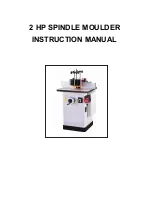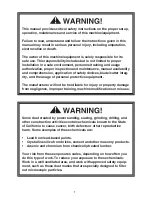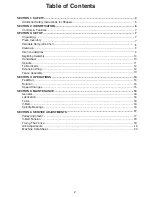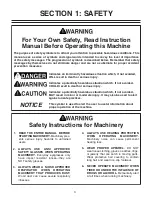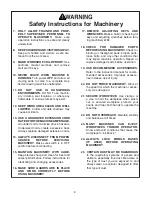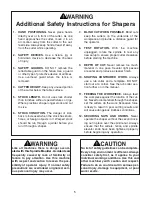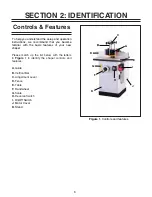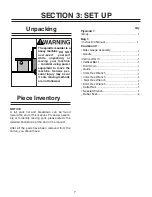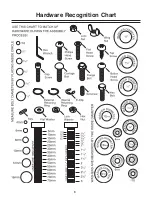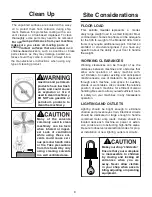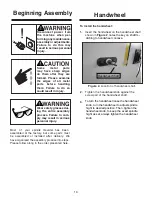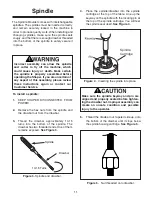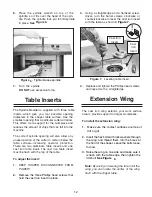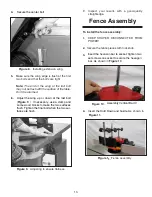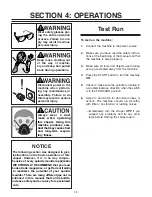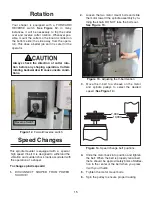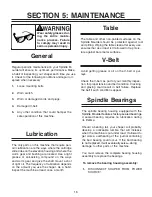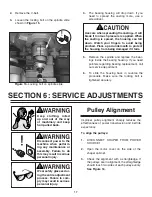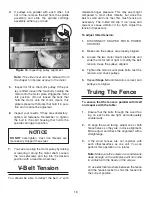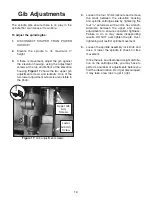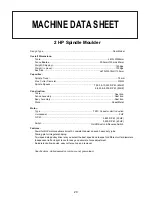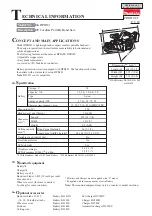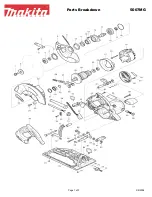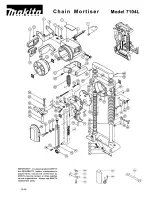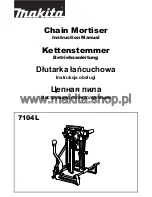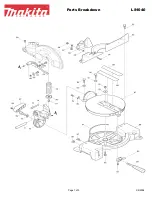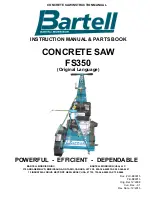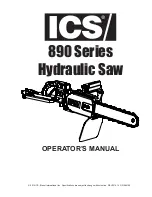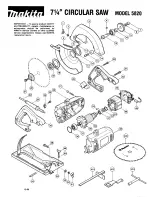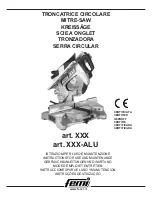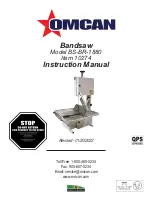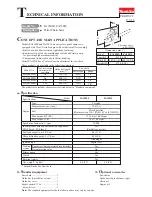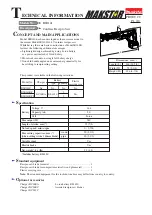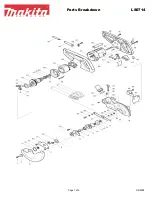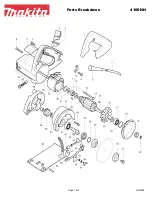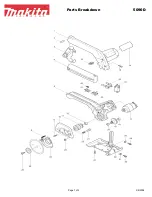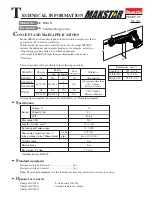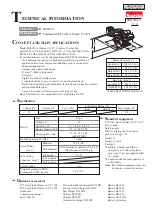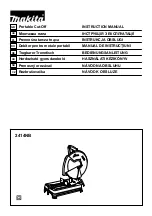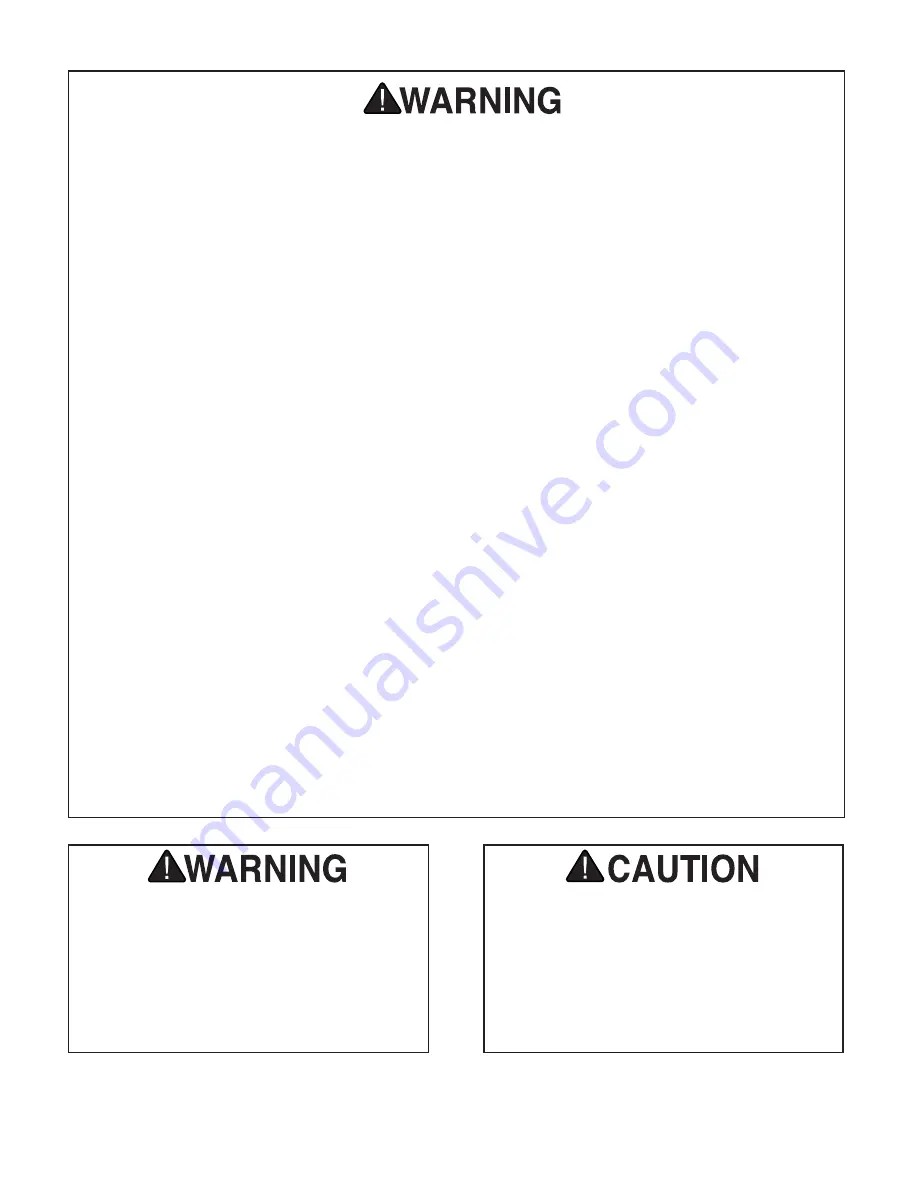
ated with this Spindle Moulder. Accidents are
No list of safety guidelines can be complete.
Every shop environment is different. Always
consider safety first, as it applies to your
individual working conditions. Use this and
other machinery with caution and respect.
Failure to do so could result in serious per-
sonal injury, damage to equipment, or poor
work results.
Like all machines there is danger associ-
frequently caused by lack of familiarity or
failure to pay attention. Use this machine
with respect and caution to lessen the pos-
sibility of operator injury. If normal safety
precautions are overlooked or ignored, seri-
ous personal injury may occur.
Additional Safety Instructions for Shapers
1.
HAND POSITIONING.
Never place hands
directly over or in front of the cutter. As one
hand approaches the cutter, move it in an
arc motion away from the cutter to the out-
feed side. Always keep hand at least 6" away
from the cutter while operating.
2. SAFETY DEVICES.
Use a fixture, jig, or
hold-down device to decrease the chances
of injury.
3. SAFETY GUARDS.
DO NOT remove the
retractable guard on the fence. Use a guard
or other type of protective device at all times.
Use overhead guard when the fence is
removed.
4. CUTTER HEIGHT.
Keep any unused portion
of the cutter below the table surface.
5.
STOCK LENGTH.
Do not use stock shorter
than 6 inches without special fixtures or jigs.
Where practical, shape longer stock and cut
to size.
6.
STOCK CONDITION.
The danger of kick-
back is increased when the stock has knots,
holes, or foreign objects in it. Warped stock
should be run through a jointer before you
run it through a shaper.
7.
BLIND CUT WHEN POSSIBLE.
Blind cuts
keep the cutters on the underside of the
workpiece and provide a distance guard for
the operator.
8. TEST ROTATION.
With the machine
unplugged, rotate the spindle to test any
new setup to ensure proper cutter clearance
before starting the machine.
9. DEPTH OF CUT.
Never remove too much
material in one pass. Several light passes
are safer and produce a cleaner finish.
10. SHAPING CONTOURED WORK.
Always
use a rub collar and a template. DO NOT
start out at a corner. See the rub collar sec-
tion further on in the manual.
11.
FEEDING THE WORKPIECE.
Always feed
the workpiece against the rotation of the cut-
ter. Never force materials through the shaper.
Let the cutters do the work. Excessive force
is likely to result in poor cutting results and
will cause dangerous kickback conditions.
12.
SECURING NUTS AND KNOBS.
Never
operate the shaper without the second lock-
ing nut in place over the spindle nut. Always
ensure that the cutters, fence, and spindle
elevator knob have been tightened properly
before beginning any operation.
5
Summary of Contents for G1026
Page 1: ...2 HP SPINDLE MOULDER INSTRUCTION MANUAL ...
Page 2: ... 1 ...
Page 4: ... SECTION 1 SAFETY 3 ...
Page 5: ... 4 ...
Page 9: ...Hardware Recognition Chart 8 ...
Page 22: ...21 ...
Page 23: ...22 ...
Page 24: ...23 ...
Page 25: ...24 ...
Page 26: ...25 ...
Page 27: ...26 ...
Page 28: ...27 ...
Page 29: ...28 ...

